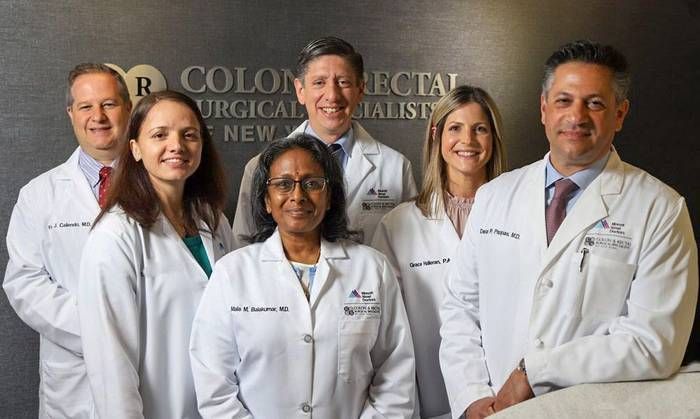
According to the Centers for Disease Control and Prevention (CDC), colorectal cancer is the third leading cause of cancer-related death in America. The American Cancer Society estimates that the risk of developing colorectal cancer is around 1 in 22 for men and 1 in 24 for women. This is why undergoing a regular colonoscopy is so important.
The team at Colon & Rectal Surgical Specialists of New York performs many colonoscopies each year, though it is not the only diagnostic procedure that allows us to examine parts of the lower bowel. The teams at our Nesconset and East Setauket, NY offices would like to discuss another diagnostic procedure known as an anoscopy, with a focus on how it differs from a colonoscopy.
What Is a Colonoscopy?
A colonoscopy is a procedure that colorectal specialists perform in order to examine a patient’s colon. The procedure uses an endoscope, which is a thin, flexible tube with a camera on the end of it.
Reasons to Perform a Colonoscopy
By performing a colonoscopy, doctors can identify cancerous growths and tissues and determine the ideal means of treatment. Early detection of colorectal cancer is always best, and increases the chances of successful treatment and survival. Colonoscopies can also help diagnose serious injuries to the colon, such as tears, perforations, and other abnormalities.
Preparing for a Colonoscopy
Patients undergo a preparation process a day or two before their scheduled colonoscopy. This will involve cleaning out their colon completely so the tissue can be clearly viewed. Typically this means sticking to a clear liquid diet for a day, followed by ingesting a special laxative to help flush the digestive tract. Regular eating habits can be resumed at the end of the colonoscopy.
How Often Should I Get a Colonoscopy?
Typically a colonoscopy should be scheduled once every 10 years starting when you turn 50 years old. Given the increased incidence of colorectal cancer in younger individuals, a first colonoscopy may be recommended at a younger age.
People who suffer from inflammatory bowel disease (IBD) will be instructed to schedule more frequent colonoscopies given their increased colorectal cancer risk.
What Is an Anoscopy?
An anoscopy is similar to a colonoscopy in that it allows colorectal specialists to examine the lower bowel. Unlike a coionoscopy, an anoscopy only involves an examination of the rectum and anus. The procedure uses an anoscope, which functions just like an endoscope but is smaller and does not proceed as far into patient’s body.
Reasons to Perform an Anoscopy
An anoscopy can help diagnose rectal and anal cancer. It is also performed to diagnose tears in the anus or rectum, rectal polyps, anal fissures, and hemorrhoids.
Preparing for an Anoscopy
Unlike a colonoscopy, an anoscopy does not require a major preparation process. Patients should empty their bladder and their bowels before their doctor visit. If needed, patients may be given a laxative or an enema to help void their bowels before the anoscopy is performed.
How Often Should I Get an Anoscopy?
Anoscopies are not regularly scheduled like colonoscopies are. Instead, an anoscopy may be performed if you complain of pain in the rectum or anus, bloody stools, or any issues affecting the lower bowel.
Speak with Our Colorectal Surgeons
To learn more about colonoscopies, anoscopies, and other methods of diagnosing health conditions, be sure to contact our experienced colorectal surgeons. Colon & Rectal Surgical Specialists of New York has offices in Garden City, Jamaica, Richmond Hill, and additional cities, allowing us to serve people in Queens and on Long Island.

